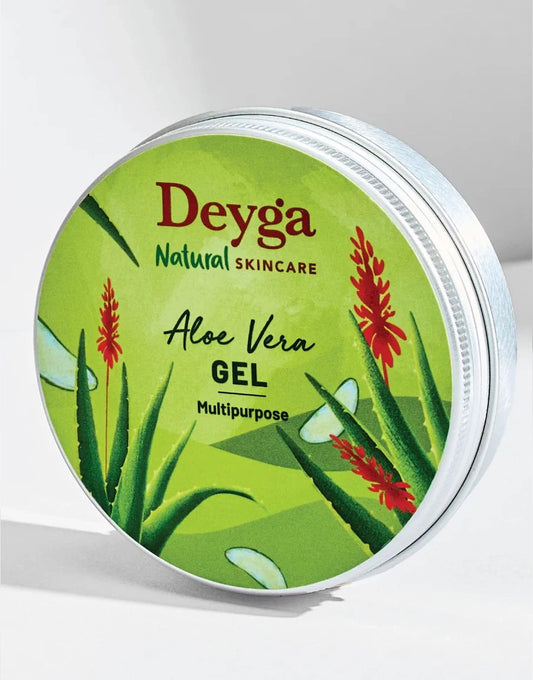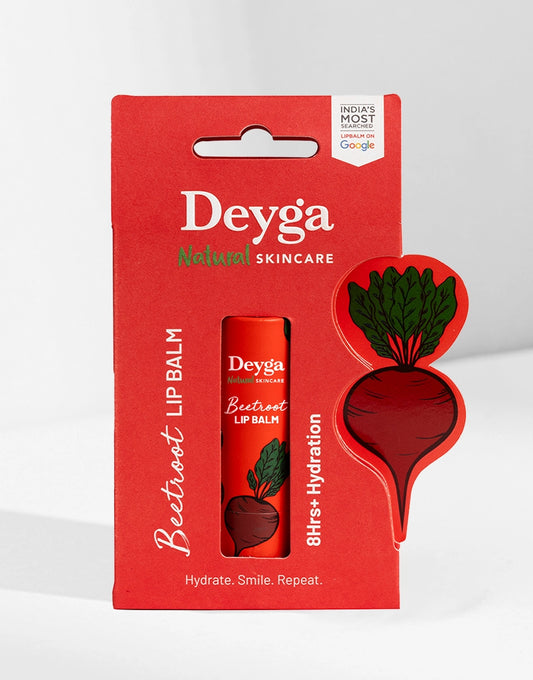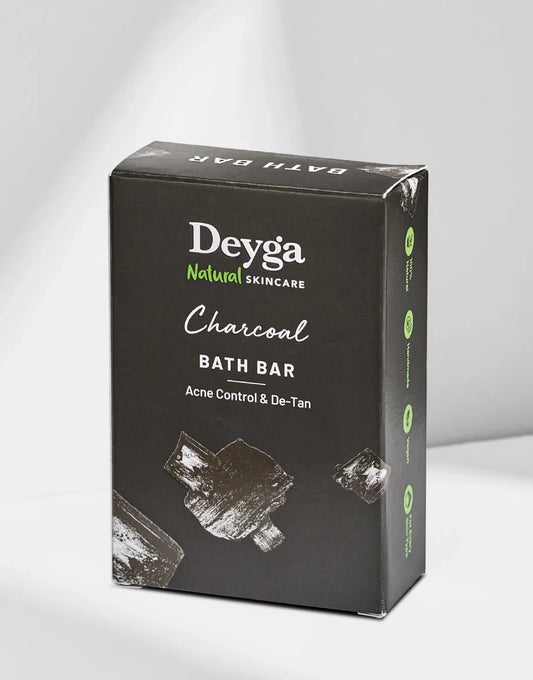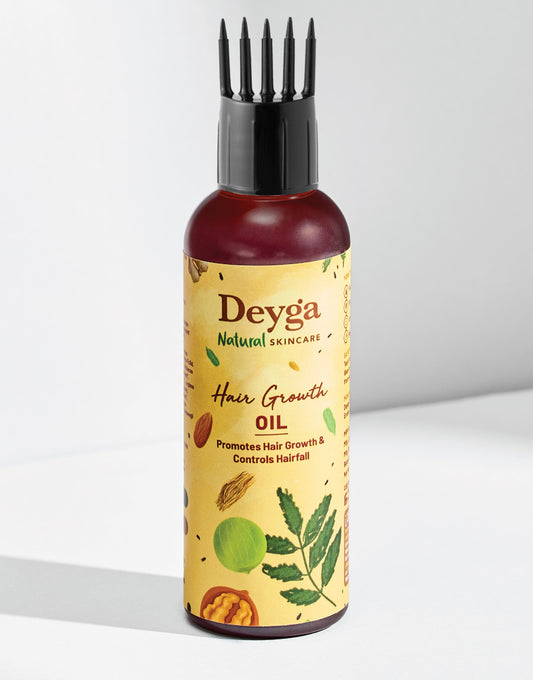Sunscreen is one of the non-negotiable parts of skincare, especially in your daytime routine. According to dermats, it is vital to apply sunscreen everyday to protect the skin from sun damage, skin tan, pigmentation, and even signs of aging. But one question that has popped up is, Can we apply sunscreen at night? And is this process safe or just a waste of product?
In this guide, you will know in detail about sunscreen, and if it is needed to wear them in your PM routine? You will know about everything in detail here which is perfect for beginners to know!
Can We Apply Sunscreen at Night?
No, it is not necessary to apply sunscreen at night. In everyday skincare routine, applying SPF sunscreen at night is unnecessary, and here it’s why:
1. No UV Exposure at Night - Since there is no sunlight, using at night does not benefit or help in any way.
2. Your Skin Needs to Breathe - In PM routine, skin needs to undergo repair and also regeneration. When applying thick sunscreens, they will clog pores and will not help in making skin breathe.
3. Increases Risk of Breakouts - As sunscreens are heavy, they may trap the oil and dirt making it too much for your skin; This will trigger your acne and breakout in your skin.
4. Creates Product Build-up - Layering too much might disturb and damage your skin barrier. Nighttime skincare is just for treatment, and not the protection.
5. Waste of Product - Using quality sunscreen makes your product costly. So, using them at night has no benefits, which is why it’s a waste of money.
Why We Use Sunscreen in the First Place
This question might pop up when you are already confused whether to use sunscreen in their everyday routine or not. The main role of sunscreen is to protect your skin from UV rays, which is in two forms:
-
UVA Rays - Which cause signs of ageing like wrinkles and fine lines.
-
UVB RAYs - Which causes skin tan and sun burn.
Since both rays have the capacity to damage skin’s DNA, which even causes long term skin concerns. The main role of sunscreen is to form a protective barrier which either absorbs or reflects these harmful rays.
Even though the role of sunscreen is completely based on sunlight, there are times where we need protection even when it's cloudy.
When Applying Sunscreen at Night Can Be Useful
Even though it’s not necessary to use sunscreen at night, there are times where dermatologists recommend using sunscreen in PM routine at must-needed situations.
1. Post-Laser Treatments or Chemical Peels
-
When there are any procedures done under dermatologist guidance, they generally ask patients to try them for a day or two.
-
This is because procedures like lasers, peels, etc make your skin sensitive. Some of the indoor light and even screens may irritate the treated areas.
-
So, in such a case sun protection is a must when fresh skin is exposed.
-
This is a short-term medical recommendation only.
2. If You Are Exposed to Indoor Blue Light
-
When you are too much exposed to lights like laptops, phones, LED screens, etc this might cause stress to the skin at times. So, in such a case using sunscreen is a must!
-
And make sure to pick sunscreens which are formulated to protect:
-
Blue light (HEV light)
-
Infrared radiation
-
Pollution
-
Especially, when you are someone who works late nights under screens, ensure to pick sunscreen which has blue light protection.
3. If You Use Retinol or Actives Without Moisturizer
-
When you are someone who uses actives like retinoids, AHAs, BHAs, may experience extreme dryness or sensitivity. So, picking moisturizing sunscreen works better.
-
Only a few moisturising sunscreens can help as an occlusive barrier.
-
But this is suitable for very dry skin, severe sensitivity, and especially only when it’s dermatologist-recommended.
Best Night Routine Instead of Sunscreen
Since sunscreen at night is unnecessary for most skin types, here’s what you should do instead:
Step 1: Cleanser
Start with a gentle double cleanser. An oil-based/cream-based cleanser followed by gentle face wash. Double cleansing is a must if you are using sunscreen or makeup in your daily routine.
Step 2: Treatment Serums
Ensure to pick sunscreen based on your skin goals:
-
Choose Niacinamide, Alpha Arbutin, when you are suffering from skin pigmentation
-
Picking Retinol, peptides works best for anti-ageing.
-
Also you can choose Vitamin C for that natural skin glow
-
For hydrated skin, it’s better to incorporate hyaluronic acid in your skincare routine.
Step 3: Moisturizer
This is a key routine for getting healthy and glowing skin. Incorporate moisturizing creams at night for hydrating the skin overnight.
Step 4: Optional Oils
Also you can incorporate oils like jojoba, aqualene, rosehip, etc for loving the skin moisture into the skin.
Why People Think Sunscreen Is Needed at Night
This is because of various factors like:
1. Social media myths - Influencers often push trends without scientific backing.
2. Blue-light fear - Blue-light-related skin damage is not as severe as UV damage.
Regular nighttime skincare is sufficient.
3. Misunderstanding dermatologist advice - Doctors only advise nighttime sunscreen in very specific medical cases, not for daily use.
Side Effects of Using Sunscreen at Night
The sunscreen is designed for day protection, not night repair. While they are not dangerous, it may cause skin concerns like:
-
Breakouts
-
Greasy skin
-
Product pilling
-
Clogged pores
-
Whiteheads
-
Dull skin over time
-
Skin irritation
What to Apply at Night Instead of Sunscreen
A good night routine focuses on repairing your skin and also nourishing. You can use products like:
-
Retinol
-
Peptides
-
Ceramides
-
Hyaluronic acid
-
Night creams
-
Sleeping masks
Final Answer: Should You Apply Sunscreen at Night?
In 99% of cases, NO. Sunscreen is meant for protection from sunlight and UV radiation.
At night, there is no sun exposure, so sunscreen has no role.
FAQs
1. Is it harmful to sleep with sunscreen on?
It is not harmful, but it is not recommended. Sunscreen can clog pores, cause breakouts, and prevent proper absorption of night skincare products.
2. Does sunscreen work under indoor lights at night?
Indoor lights have minimal UV radiation. Unless you have undergone a skin procedure or use devices very close to your face for long hours, sunscreen is unnecessary.
3. Should people with pigmentation wear sunscreen at night?
No. For pigmentation, wear sunscreen during the day and use targeted treatments like niacinamide, AHAs, or retinol at night.
4. Can sunscreen replace a night cream?
No. Sunscreen is a protective product, while night creams are repairing and nourishing. Their functions are completely different.
5. Can I use sunscreen if I work night shifts?
If you are exposed to strong artificial lighting or screens, choose blue-light protective skincare, not sunscreen. Sunscreen is only required when exposed to sunlight.












